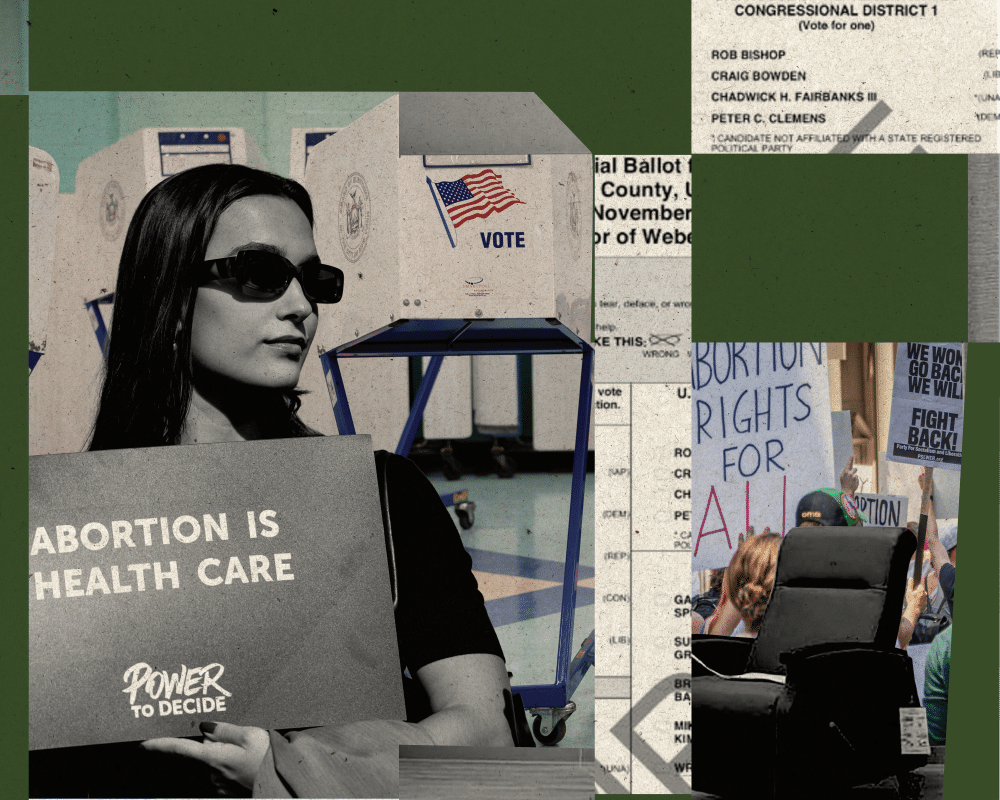When the US supreme court overturned Roe v Wade more than three years ago, unleashing a wave of state-level abortion bans, the justices catapulted abortion rights to the top of US voters’ minds. The issue has dominated every election cycle since – and 2025 is no different.
The gubernatorial races in New Jersey and Virginia could have sweeping consequences for abortion access in two states that have become havens for women fleeing abortion bans. In Pennsylvania, what should have been a relatively sleepy judicial-retention election has evolved into the most expensive race of its kind in nearly 50 years, largely due to heated fighting over abortion. With voters weighing whether to keep three Democratic justices on the state supreme court, advocates fear that liberals may lose control of the bench and, ultimately, lose abortion access in the purple state.
New Jersey
New Jersey is one of the most abortion-friendly states in the country, since it does not place a gestational limit on the procedure. But abortion rights activists fear that could soon change, depending on the outcome of the contest between Republican Jack Ciattarelli, a former New Jersey representative, and Democrat Mikie Sherrill, a current representative for the state.
While Sherrill supports New Jersey’s existing law, Ciattarelli believes abortion should be banned after 20 weeks of pregnancy. He has also voted multiple times to strip government funding from Planned Parenthood and wants to block minors from having abortions unless they have notified their parents.
“I’ve always supported a woman’s right to choose,” Ciattarelli said in a recent debate. “What I don’t support is making New Jersey the abortion capital of the country, inviting other people – people from other states – to come to New Jersey and have their abortions performed. I don’t support that, let alone use taxpayer dollars to do that.”
“When you put in place things like my opponent has suggested, people die,” Sherrill shot back. “These are not pro-choice positions.”
Over the last few weeks, both Planned Parenthood and Reproductive Freedom for All have announced six-figure ad buys to support Sherrill. Polling from Rutgers University–New Brunswick found that, as of late October, Sherrill was leading Ciattarelli by five points.
Pennsylvania
Come November, Pennsylvania voters will decide whether to retain sitting state supreme court justices Christine Donohue, Kevin Dougherty and David Wecht, all of whom are Democrats. If voters decide to kick any of the justices out, the state’s Democratic governor, Josh Shapiro, will appoint a temporary replacement to hold the seat until a competitive election can be held in 2027.
But losing any of the justices could tilt the balance of the court, which is currently held 5-2 by Democrats.
Because Roe’s fall means that state supreme courts now tend to have the last word on whether abortion laws are legal, spending in US judicial elections has soared. Pennsylvania’s intricate campaign-finance laws make it hard to track spending, but Douglas Keith, deputy director in the Brennan Center’s judiciary program, estimates that roughly $15m to $16m has already been poured into the Pennsylvania race. Much of that money has gone into ads trumpeting the court’s role in determining abortion rights.
“The messaging in this race is nothing like what we saw in judicial elections before Dobbs,” Keith said, referring to Dobbs v Jackson Women’s Health Organization, the supreme court case that overturned Roe. “You see it in TV ads from the groups supporting the justices and from the justices themselves. You see it in mailers.”
The Pennsylvania supreme court has leapt into the abortion debate at least once in recent history: in 2024, the justices ruled that a state ban on using Medicaid to pay for abortions is sex-based discrimination and thus unconstitutional under Pennsylvania’s equal rights amendment.
Virginia
Republican Winsome Earle-Sears, the current lieutenant governor of Virginia, and Democrat Abigail Spanberger, a former representative, are now vying to become the state’s first female governor. As the last state in the US south without a post-Roe abortion ban, Virginia has become a sanctuary for abortion clinics.
Related: Anti-abortion groups furious as FDA approves generic abortion pill
Spanberger has backed Virginia’s current abortion laws, which permit the procedure until 27 weeks of pregnancy. She has also publicly championed an amendment to Virginia’s state constitution that would protect abortion rights, which has already passed state’s general assembly once. That amendment has to pass general assembly once more before voters can weigh in.
As lieutenant governor, Earle-Sears is legally required to sign bills that the legislature passes, including the abortion rights amendment. But when she signed off on it, she added a handwritten note that read: “I am morally opposed to this bill; no protection for the child.” And during her 2021 race for her lieutenant governor seat, Earle-Sears said in an interview that she considered abortion “genocide” and wants to make abortion illegal except in cases where the mother’s life is in danger.
In her lone debate with Spanberger, however, Earle-Sears said that her personal position on abortion doesn’t matter.
“The commonwealth needs to come together and figure out where it wants to be,” Earle-Sears said. “It’s not going to be my view. It’s going to be the view of the majority.”
All 100 seats in Virginia’s house of delegates are also up for grabs this year. In order to get the abortion rights amendment to voters in 2026, Democrats must hold onto their majority in the house. Recent polling showed Earle-Sears trailing Spanberger by seven points.

